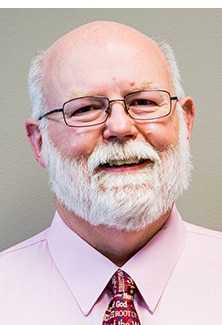By Chris Moon
A recent survey indicated Christian evangelism is not a priority in Canada, so we asked two Canadians with Restoration Movement roots—a minister/church planter and a Christian educator—to share their views.
Alpha Canada and the Flourishing Congregations Institute polled 2,700 mostly evangelical church leaders in May and June 2021 and discovered 65 percent of them say evangelism hasn’t been a priority for their members during the past several years. Only 13 percent said evangelism was a “high” or “essential” priority for their congregations.
A Christianity Today article that explored the survey results offered several reasons for the lackluster interest in sharing the good news. Among them, the negative way Christianity may be perceived by Canadians in light of sexual abuse scandals within the church as well as the church’s involvement in residential schools for indigenous people across Canada.
Recent discoveries of hundreds of unmarked graves at those schools brought an angry response among many in the country.
Additionally, Canada is home to relatively few evangelical Christians, with only 6 percent classified as such, according to the Evangelical Fellowship of Canada.
So how are these evangelistic headwinds playing out among churches in the Restoration Movement?
A MOVE TOWARD DISCIPLE-MAKING
Jim Tune is a church planter based in the Toronto metro. He serves as president of Impact Ministry Group and currently is working as lead pastor to re-launch a church in Burlington, Ontario.
“It did ring true,” Tune said of the survey and accompanying Christianity Today article.
He said he senses a “weariness” among churches desiring to mend their own fences and keep themselves together in a secular society—particularly in the age of COVID-19 when so many church gatherings were shuttered for so long.
Tune isn’t convinced evangelicals can even account for 6 percent of the Canadian population. Tune grew up in Canada and said he always was hard-pressed to find another Christian at the schools he attended.
Meanwhile, the Restoration Movement is only a tiny sliver of that 6 percent. Tune said about 60 Canadian churches identify with the Restoration Movement, and “if you were to put all 60 of those together on Easter Sunday, I don’t think you would see more than 3,500 people—4,000 maybe.”
And so, the “weariness” among churches is frustrating, Tune said. One would think that such a small segment of the population would become highly interested in growing and that evangelism and church planting would be a hot topic.
“I would say in general, most of the churches are islands to themselves,” Tune said. “Evangelism is probably a higher priority to the preachers than it is in the pews.”
“I think a lot of the churches feel defeated in Canada.”
Tune said about 10 Restoration Movement churches operate in the province of Ontario, and 9 out of those 10 aren’t doing any formal evangelistic training or outreach.
Part of the reason for this is the stigma that can be attached to evangelism—similar to how used car sales might be viewed in America.
Tune advocates a disciple-making model of church growth where leaders gather small groups of believers and seekers to study the Bible and answer questions.
He shared a couple of personal interactions he’s had—at a backyard barbecue and at his local coffee shop—that have resulted in non-Christians beginning to read the Bible and ask serious questions about the faith.
Tune regularly leads Discovery Bible Studies with the aim of helping people dig deeper into the faith. But this is out of step with Tune’s previous method of growing churches.
He and his wife planted a church 20 years ago. The idea then was to offer attractional services and programming. It was effective—with 750 baptisms in 14 years.
“I never did this low, slow disciple-making. I never had time for that,” he said—joking that he figured he could have found a program for that.
“I am recognizing the last 20 years of my life are going to have to be slow and low to make real disciples that really stick.”
SHARING THE LOVE OF JESUS
Meanwhile, in western Canada, Stan Helton isn’t so convinced evangelism isn’t a priority for Canadian churches and their leaders.
The president of Alberta Bible College in Calgary said there’s a difference between evangelism and “member recruitment.” The latter means simply trying to get more people into the pews. The former is sharing the love of Christ in word and deed with those who don’t know him.
If evangelism is “sharing the love of Jesus, generally it is up,” Helton said.
Some churches during the pandemic have gained larger audiences for their messages through the web-based services they offer, he said.
Helton is an elder at Bow Valley Christian Church in Calgary, which has seen its in-person attendance decline.
“But we don’t think our church has diminished,” he said.
People continue to tune in via the internet, and the church’s budget remains stable, Helton said.
And while the Word of God is being proclaimed farther and wider, it also is being lived out in tangible ways by Canadian churches, he said—at least at times.
Helton noted the controversy about residential schools operated by churches in Canada. “Some of the things the culture is angry about is justifiable,” he said.
But he noted one old residential school in Dauphin, Manitoba, had been turned into a ministry to indigenous families. The Parkland Crossing ministry is operated by the Dauphin Church of Christ.
“It’s an example (of churches) trying to do redemptive work in their community,” he said.
That can help to soften the antagonism toward Christianity in Canadian culture, Helton said.
Listening can do the same thing, he added.
“I think our churches are in a time where they have to up their hospitality game,” he said.
Helton recalled one church that was tagged with graffiti following revelations at the old residential schools. The church, he said, left the spray paint up and invited members of the community to come have a dialogue about the issue.
While it sometimes goes unnoticed, Helton said, “it’s often churches that are leading the charge on reconciliation.” And he said many indigenous people have embraced some type of Christianity.
The fact is, Helton said, evangelicalism is far from dead in Canada—something that isn’t likely to make headlines in the same way a survey about evangelism will.
“I just don’t think it tells the complete story,” he said.
Chris Moon is a pastor and writer living in Redstone, Colorado.



I would like to partner with your ministry for the sake of the gospel of Christ
I am reminded of a lyric from a popular song in the sixties, “The preacher comes and goes, he only knows my soul, makes it hard for me to see.” I believe that we have finally come to realize that sharing the love of God in tangible, material ways has a more lasting effect than revival meetings. Helton hits the nail on the head when he distinguishes between “evangelism” and “member recruitment.”
I think many churches are struggling to define what is Biblical Christianity, as progressivism was growing in many churches before the pandemic. When lockdowns came, a vast majority of churches complied, and not a few are still either closed or struggling to regain attendance numbers. This liberalism has never been catalyst for evangelism in any denomination, and it isn’t any different for our movement. When Biblical authority is lost the need for evangelism is cloudy.
We were totally unprepared to resist the government overreach that submitted churches to the State far beyond the requirements of Romans 13. Many churches still do not sing, celebrate the Lord’s supper, baptise, and limit attendance, and even demand vaccine passports to attend (when we realised the government was lying, we reopened after the first two weeks. We have experienced unprecedented growth).
It is a very difficult thing for a nation that was not born of revolution to understand that God must be obeyed rather than men (Acts 5:29). Trust in government and media are far too high.
This failure to resist in worship will make it more difficult to preach 1 Corinthians 6:9-11 with the unanimous passage of Bill C4 this week, a law that prohibits “conversion therapy” for non-normal sexual attractions. This is easily a law against conversion.